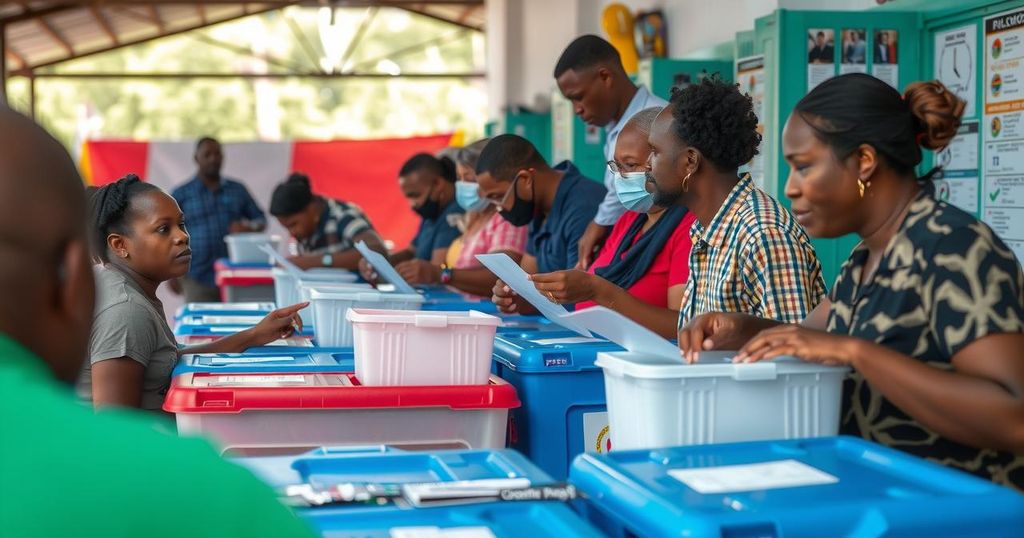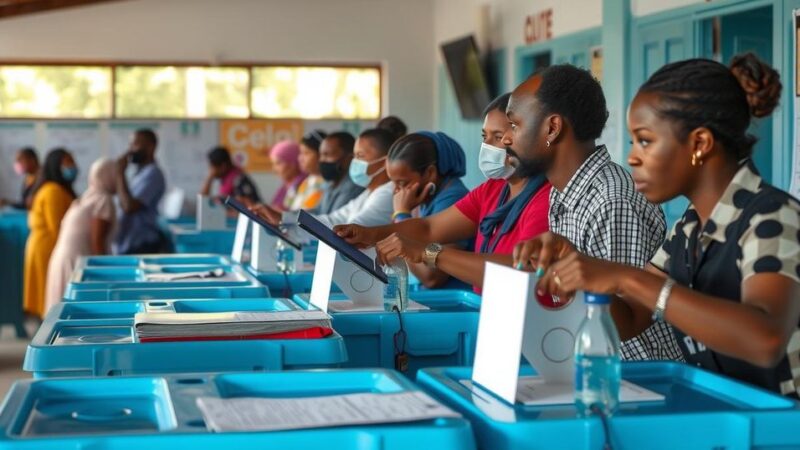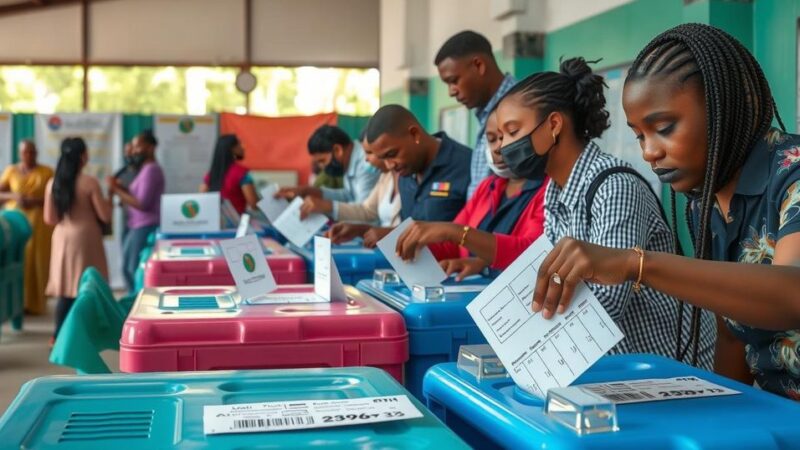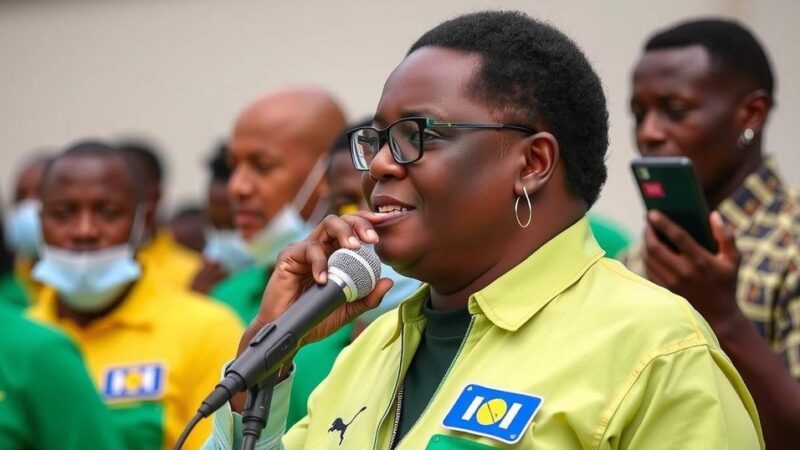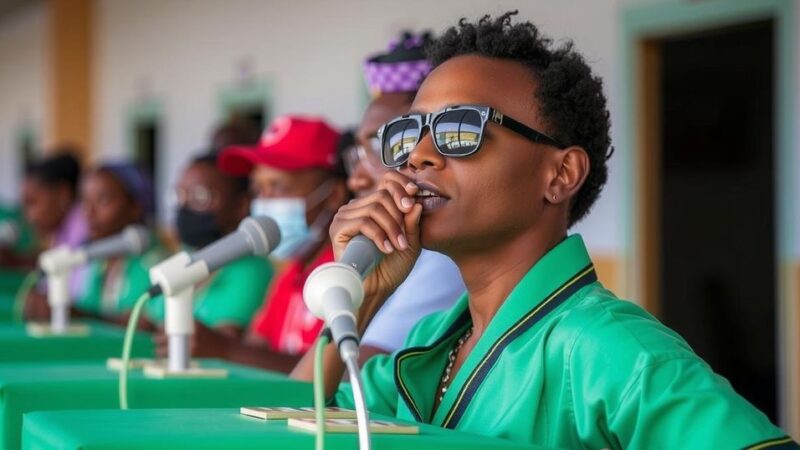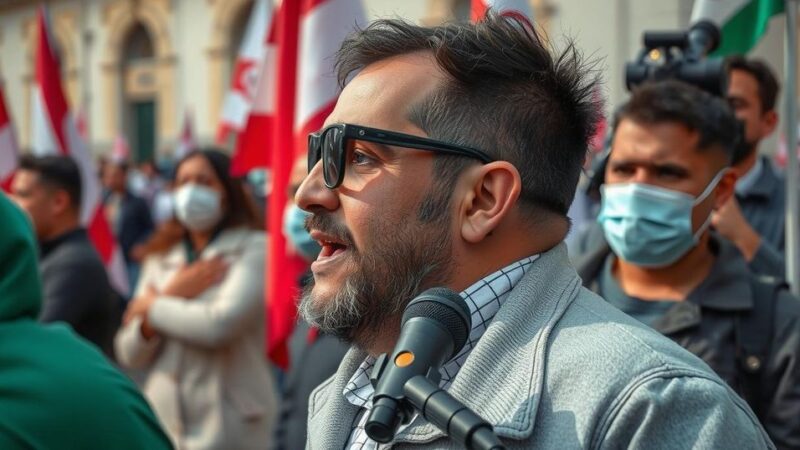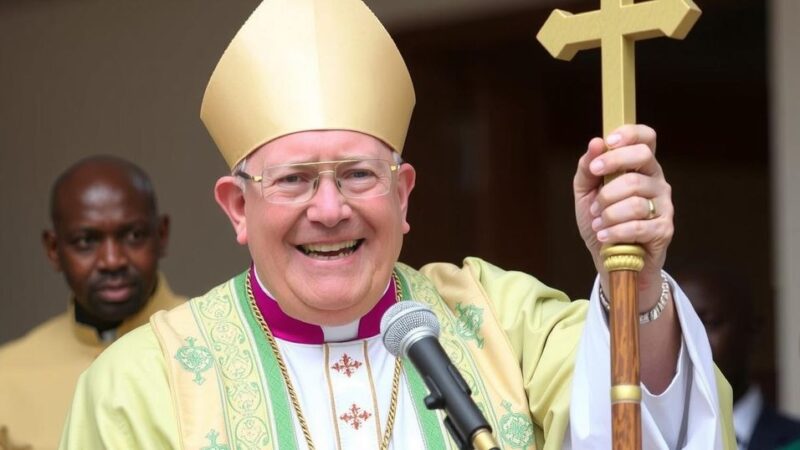Voters in Comoros are electing a new 33-seat parliament amid allegations of electoral misconduct from the opposition directed at President Azali Assoumani’s administration. Approximately 338,000 citizens are registered to vote, and nearly 100 candidates have been cleared to contest. Opposition parties are divided on whether to boycott the elections, reflecting ongoing tensions in the country’s political landscape. Results are expected by Friday.
Voters in Comoros are participating in elections for the Indian Ocean archipelago’s 33-seat Parliament, following President Azali Assoumani’s re-election last year, which the opposition claims was marked by significant irregularities. Election officials from the ruling party have denied such allegations. On Sunday, polling stations opened to approximately 338,000 registered voters. The last parliamentary elections took place in January 2020 and nearly 100 candidates have been approved by the Supreme Court to vie for parliamentary seats.
Assoumani’s leadership, which began in 1999 after a coup, has been characterized by accusations of authoritarianism, with concerns that he aims to position his eldest son, Nour El-Fath, as his successor. In 2024, Assoumani granted his son extensive powers, consolidating control over governmental operations. Some opposition factions, such as the Juwa party led by former President Ahmed Abdallah Sambi, who is currently serving a life sentence, are calling for a boycott of the elections, while other parties reject this strategy.
Hamidou Karihila, an opponent from the Hope of the Comoros party, asserted, “The Azali regime is weakened… by participating in these elections we are contributing to further exposing the flaws in its system and accelerating its inevitable fall.” Provisional results are anticipated by Friday, raising questions about the legitimacy and future of Comoros’ democratic processes.
The political landscape in Comoros has been turbulent, with President Azali Assoumani having ruled since 1999 after coming to power via a coup d’état. His tenure has been marked by successive elections, with the last parliamentary elections occurring in January 2020. Allegations of corruption and authoritarianism have persisted against his administration, particularly concerning efforts to ensure a dynastic transfer of power to his son. The call for boycotts by certain opposition parties highlights the divisions within the political arena as the nation approaches this electoral juncture.
The electoral process in Comoros is indicative of the nation’s ongoing political struggles. With widespread allegations of misconduct surrounding previous elections and fears of an authoritarian shift in governance, the outcome of the current parliamentary elections could have profound implications for the future of democracy in the archipelago. The responses from various political factions, including calls for boycotts and participation, reflect the complexities and tensions present within Comorian politics.
Original Source: www.stawelltimes.com.au

